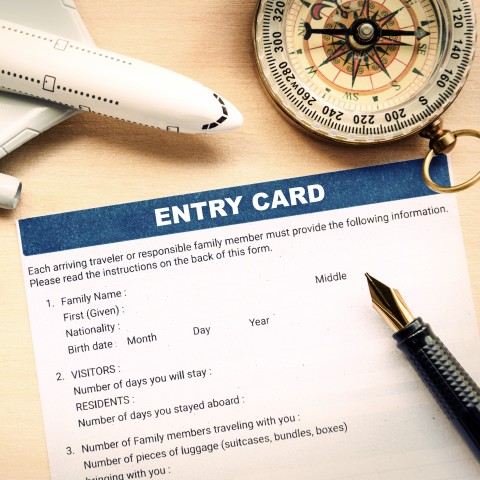
Some of you might have heard about how difficult it is to learn Cantonese. After all, Cantonese is a tonal language with its own writing system based on thousands of Chinese characters!
Do you fancy to learn Cantonese but want to get a rough idea of how long it’s gonna take? Or maybe you’ve already passed the beginner stage and would like to see how your progress compares to that of your peers?

Today at CantoneseClass101, we’ll answer the question: How long does it take to learn Cantonese?
Our answers will be based on the three levels of Cantonese proficiency: beginner, intermediate, and advanced. This will give you a rough idea of what to expect throughout your Cantonese learning journey and serve as a benchmark.
Let’s get to it!
 Table of Contents
Table of Contents
- The Many Factors Involved
- How Long Does it Take to Achieve a Beginner Level?
- How Long Does it Take to Achieve an Intermediate Level?
- How Long Does it Take to Achieve an Advanced Level?
- Tools to Facilitate Your Language Learning Journey
- Why is CantoneseClass101 Great for Learning Cantonese?
1. The Many Factors Involved
Before we talk about how long it will take to reach each level, there are a few key factors we need to consider. They’ll impact how fast you can learn Cantonese, so keep them in mind when coming up with your own estimate!
Cantonese vs. the languages you know
Cantonese is quite different from most languages. For one, it’s a tonal language that relies on pitches to distinguish between words. It also uses a completely different writing system than English does. Cantonese uses characters that are composed of parts that depict physical objects or abstract ideas—there are thousands of characters and each one carries a sound and a meaning.
If you know Mandarin, which is also a tonal language that uses characters, chances are that you’ll pick Cantonese up much faster!
Your motivation
How much time and effort you’re willing to spend makes a huge difference. Are you learning Cantonese because of your partner? Or are you a big fan of Cantonese movies? Having a goal or a strong reason will help you strive for success and overcome any hurdles along the way!
Your language learning resumé & age

It’s not easy to learn a new language, but having previous experience will speed up your progress. This is because you’ll already know how and where to start! Also, the more languages you’re exposed to, the easier it gets to decipher their logic and understand the inner workings of their grammar and structures.
Of course, age matters too. It’s easier to memorize new words and rules while you’re young. Studies have found that language-learning ability declines at age 18. The sooner you learn a language, the better!
Are you planning to learn the Chinese characters too?
Chinese characters are logograms. Each Chinese character is unique with its own pronunciation, and you’ll need to memorize 2000-3000 of them to read a newspaper. It does take a bit of time to recognize how the characters look and how to write them.
If you only want to learn how to speak Cantonese, you might want to consider studying only the romanization (i.e. the jyutping system) and bypass the learning of Chinese characters. This will speed up the learning curve a lot.
2. How Long Does it Take to Achieve a Beginner Level?

Beginner-Level Skills
- CEFR Equivalent: A1-A2
Speaking & Listening
You should be able to conduct basic and simple conversations (self-introductions, asking for directions, ordering food) and know some survival Cantonese.
Reading & Writing
At this level, you will only need to know some jyutping.
Duration
So how long will it take to learn Cantonese if you only want to achieve this level? Assuming you spend at least an hour per day studying…
- Average: 2-3 months
- If you know Mandarin: 2 months or even less
Tips
The most important thing for Cantonese beginners is to accumulate vocabulary. So, make good use of flashcards! You can use them to remember words, simple phrases, and anything else you want. A simple search for “flashcards” on your phone’s app store should give you plenty of options.
Another tip is to learn the romanization system. Literacy in Cantonese requires the memorization of thousands of components and characters, which can be daunting for new Cantonese learners. To start learning the sounds of Cantonese without the baggage of characters, Cantonese jyutping (also referred to as Cantonese romanization) is the perfect place to start. This is essentially a way to help translate Cantonese pronunciation into English pronunciation.
With the romanization system, you’ll be able to learn the correct pronunciation of a word easily. No guessing and no Chinese characters needed!
3. How Long Does it Take to Achieve an Intermediate Level?

Intermediate-Level Skills
- CEFR Equivalent: B1
Speaking & Listening
At the intermediate level, you should be able to…
- …articulate more complex thoughts.
- …use different sentence patterns to some degree.
- …handle short conversations or discussions with locals.
- …pronounce words more accurately (not mixing up the 9 tones!).
Reading & Writing
Your reading and writing skills will still be quite limited, though you’ll be more familiar with how jyutping works.
Duration
Assuming you spend at least an hour per day studying, here’s how long it might take you to reach intermediate-level Cantonese.
- Average: 6 months
- If you know Mandarin: 3-4 months
Tips
The crucial element required to reach an intermediate level is “practice.”
By now, you should have accumulated some additional vocabulary, phrases, and even sentence patterns. You’ll need to practice speaking more so that you can put all of that knowledge to good use! Don’t be afraid of making mistakes, and start chatting with local friends! If you don’t have Cantonese-speaking friends, you could try finding study partners online or an online coach. Through making mistakes, you’ll figure out where and what you should improve.
4. How Long Does it Take to Achieve an Advanced Level?

Advanced-Level Skills
- CEFR Equivalent: C1
Speaking & Listening
Upon reaching an advanced level of Cantonese, you should be able to…
- …converse with locals with ease.
- …give fluent speeches.
Reading & Writing
Being an advanced Cantonese student means that you can recognize roughly 2000-3000 Chinese characters in addition to the jyutping. This will allow you to read newspapers and other short, simple texts.
Duration
So how long would it take to learn Cantonese to this level of fluency? Assuming you spend at least an hour per day studying…
- Average: 1-3 years**
- If you know Mandarin: 6-12 months
** Learning the language takes 1-2 years on average for those who ignore the Chinese characters and focus solely on speaking. If you decide to pick up the Chinese characters as well and want to read a newspaper, the average time needed is 3 years.
Tips
Deep immersion (like living in a Cantonese-speaking region) is the ideal path for reaching the advanced level. Through daily usage and conversation, you’ll learn the various ways to articulate ideas in Cantonese—not just through textbook examples, but also through local slang terms and idioms. Make local friends, speak the local language, and experience life locally!
If staying in a Cantonese-speaking city is not an option, why not watch Cantonese movies and TV shows? This would be a fun way to learn the language, plus it can teach you more about the local culture!
5. Tools to Facilitate Your Language Learning Journey
Wondering how to learn Cantonese faster? While effort and time count, there are also some tools you can use to smoothen your path and speed up your progress!
Online lessons
When it comes to learning a language anywhere and anytime, online classes are your bread and butter. They’re usually fit for any level and are much more affordable than schools or private lessons.
For example, you can watch and listen to over a thousand videos and audio lessons from CantoneseClass101 through our mobile app, desktop software, or website.

Private schools and teachers
Private schools and teachers are usually the most effective resources, as they can tailor the course just for you—but they’re also the most expensive. We would suggest carefully reading feedback and reviews from students before committing to anything. Stay away from courses with too many students per teacher and beware of scams!
Immersion

Immersion is truly the best way to learn a language, whether it’s deep immersion like living/working/studying in the local country or soft immersion like watching Netflix/TV/movies in your target language. Immersion is helpful because it’s much more authentic and you can observe how the language is being used in different scenarios—the underlying rules of the language. Over time, you’ll also know much more about the language and culture. If you’re engaging in deep immersion, you can make local friends too!
Why is CantoneseClass101 Great for Learning Cantonese?
With CantoneseClass101.com, you can have your daily dose of Cantonese whenever and wherever you want, through mobile apps, desktop software, and our website. We offer entertaining, engaging, and effective lessons on various aspects of the Cantonese language and culture.
Until now, we’ve delivered more than 750,000,000 lessons to thousands of happy students from all around the globe. You can learn Cantonese with over 1060 audio and video lessons delivered by our knowledgeable and energetic hosts, detailed PDF lesson notes, an abundance of vocabulary learning tools, spaced repetition flashcards, and a lively community where you can discuss the lessons with fellow learners. What are you waiting for? Download our lessons, enjoy our audio and video files, and start learning now!
And keep in mind that if you prefer a one-on-one learning approach and want to further accelerate your Cantonese learning, you can take advantage of our MyTeacher service with a Premium PLUS account!
Know that your hard work will pay off, and before you know it, you’ll be speaking Cantonese like a native.
Before you go, let us know in the comments if you feel ready to start learning Cantonese after reading this article. And if you already know some Cantonese, please share with fellow learners how long it took you to get where you are. We look forward to hearing from you!










